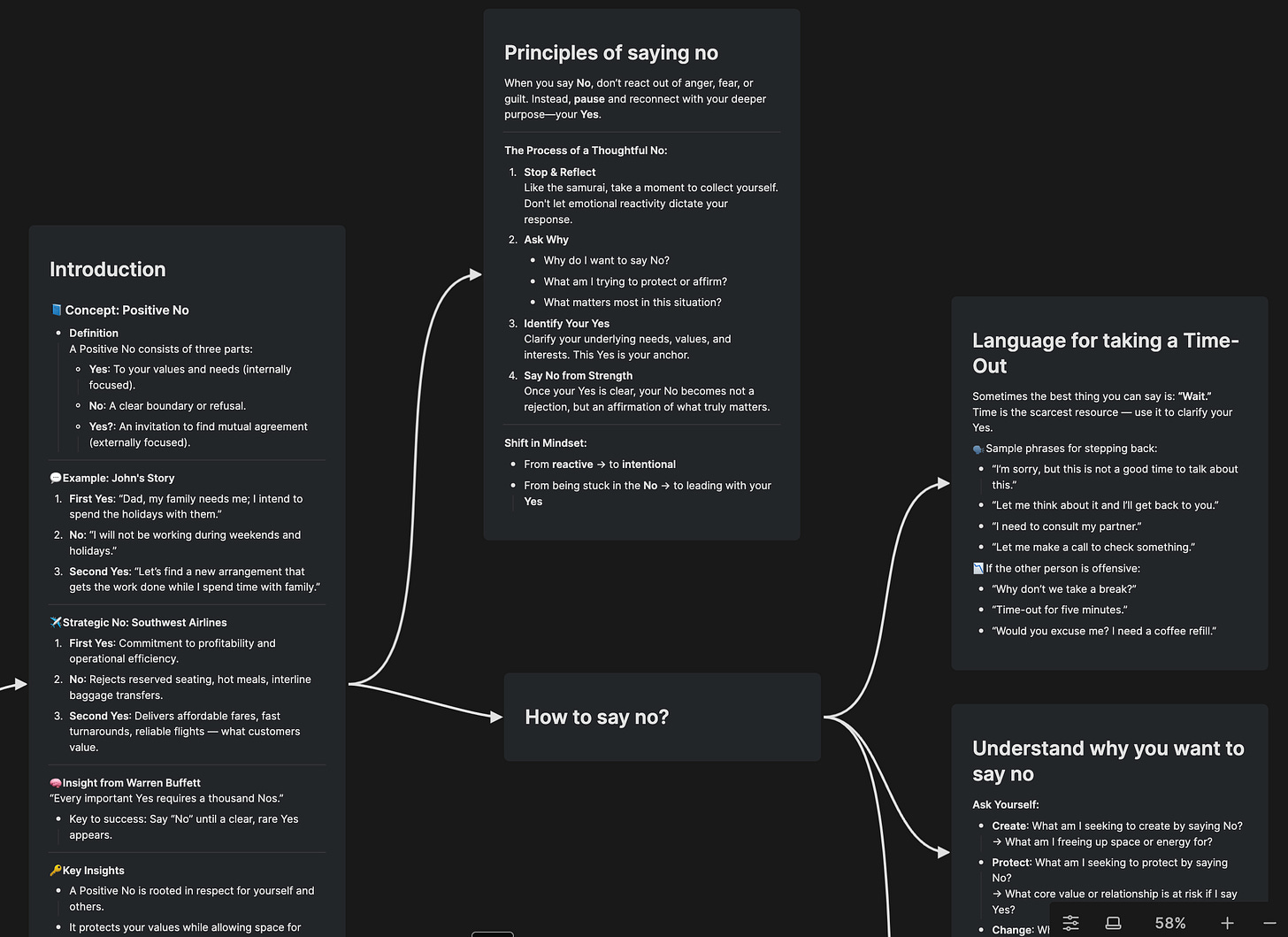Honor the power within me
difficult conversations & saying no
Lately, I’ve been learning how to have more difficult conversations, and how to say no. My friend inspired me, and I realized both of these are really about the same thing: reclaiming power. They're about expressing my core needs and emotions, not the surface-level stuff, but what really matters inside. And when I honor those needs, I feel powerful.
But here's the honest question:
do difficult conversations actually make life better?
Let’s look at the stats:
Told my company I felt undervalued
Shared emotional needs with my roommates x2
Set expectations for a new friendship
Expressed fear about holding all the responsibility for a camping trip
Results?
1 ghosted
2 fights
1 case of passive-aggressiveness
1 happily resolved
Oof. Not exactly the happy ending the self-help books promised. I used to think that if I put in the emotional effort, things would resolve beautifully. But real life isn't a chapter in a communication book.
This snippet is from the message to set expectations for a new friendship. And then I just immediately ghosted the second time. (It was a much longer message. Though it’s intense, I quite like it because it really represents who I am.)
Still, Esther can still explain her discomfort in her brain in several dimensions:
(1) personal value: Esther believes love comes with expectations and commitment. they are healthy even though many people are scared of both. Expectations are a manifestation of belief in self worth, while commitment implies genuine care of others through that willingness to put into effort. Esther always feel she worth a lot, so she generally ask for a lot and commit a lot too. And this part could be quite different from average human being, especially in the individualistic or career driven culture.
I started questioning myself.
But then I realized:
difficult conversations don’t always bring outer resolution. they bring inner peace.
When I confronted my company about how I felt, and realized they didn’t value me, I finally had clarity and peace to move forward.
When my new friend ghosted after I shared what I needed, I saw clearly that it wasn’t a relationship I wanted anyway.
When I broke down crying in front of a close friend, consumed by anger and frustration, it didn’t fix everything, but it freed something inside me. Even though tension remained, I felt powerful. I had finally shown up as my full emotional self. I respected that part of me. I had done the inner work. The ball is no longer in my court.
Of course, doubts still creep in:
"Am I too harsh?"
"Do I deserve to take up this much space?"
But those questions now float in a vast ocean of calm, not shake like a bottle full of resentment.
learning how to say no
That journey naturally led me to another lesson: how to say a positive no.
I’ve felt overwhelmed—by work, by domestic pressures, by people constantly needing things from me. When I said, “Hey, I’m on vacation. Can you decide on your own?” People responded me with,
“Do you want a monitor?”
“Curved or flat?”
“What size?”
Even when I try to step back, the asks don’t stop. And saying no feels impossible.
saying no is actually saying a deep yes for yourself
I'm afraid to say no. It asserts power but risks the relationship. Saying yes preserves the bond but costs my sense of self.
What if I create a terrible relationship?
What if I lost my job?
I began to realize I felt powerless because I kept saying yes, while others said no to my needs, especially at work. I felt reduced to just a production machine.
I used to think saying no was selfish. especially as an Asian daughter. I was taught to say yes. “No” meant defiance. My mom would scold me: “Stop saying no! Practice saying yes.”
But now, I’m unlearning that.
I’ve learned that a “positive no” has three parts (The Power of a Positive No)
Yes: To your values and needs (internally focused).
No: A clear boundary or refusal.
Yes?: An invitation to find mutual agreement (externally focused).
Instead of giving a weak or resentful yes, which leaves me feeling powerless, I now ask:
What am I seeking to create by saying No?
What core value or relationship is at risk if I say Yes?
What behavior or situation needs to improve?
Saying no isn’t rejection. It’s an act of creation. It makes space, for protection of my core values, for changes to situations that I don’t want to be in, and for a self I’m finally learning to honor.
I'm just at the beginning of this practice, but I hope that one day Esther will no longer fear saying no, that she'll stand firmly in who she is and her practice to live with more audacity.
Thanks for coming along with me for this journey.




